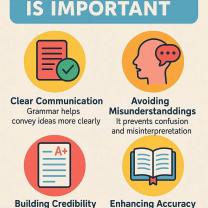What are the best college degrees to pursue?
The "best" college degrees to pursue depend on various factors, including your interests, career goals, and the job market. Here are some considerations and options for college degrees:
STEM Degrees (Science, Technology, Engineering, and Mathematics):
- Computer Science: In the age of technology, computer science degrees are in high demand. They lead to careers in software development, data analysis, artificial intelligence, and more.
- Engineering: Engineering degrees (e.g., mechanical, electrical, civil) offer strong career prospects in various industries, from manufacturing to infrastructure development.
- Mathematics: Mathematics degrees can lead to roles in data science, actuarial science, finance, and academia.
Healthcare Degrees:
- Nursing: Nursing degrees, including Bachelor of Science in Nursing (BSN), can lead to careers as registered nurses, nurse practitioners, or nurse educators.
- Pharmacy: Pharmacists play a crucial role in healthcare. A Doctor of Pharmacy (Pharm.D.) degree is required to become a licensed pharmacist.
Business and Management Degrees:
- Business Administration: A degree in business administration can lead to careers in management, marketing, finance, and entrepreneurship.
- MBA (Master of Business Administration): An MBA is often pursued by mid-career professionals to advance their careers into leadership roles.
Education Degrees:
- Elementary or Secondary Education: These degrees prepare you to become a teacher in K-12 schools.
- Special Education: Special education degrees focus on teaching students with disabilities.
Social Sciences and Humanities Degrees:
- Psychology: Psychology degrees can lead to careers in counseling, clinical psychology, research, or human resources.
- Social Work: Social work degrees prepare you for roles as social workers, counselors, or therapists.
- Political Science: Political science degrees can lead to careers in government, public policy, law, and international relations.
Science Degrees:
- Biology: Biology degrees can lead to careers in research, healthcare, environmental science, and biotechnology.
- Chemistry: Chemistry degrees are valuable in pharmaceuticals, chemical manufacturing, and research.
Environmental and Sustainability Degrees:
- Environmental Science: These degrees can lead to careers in conservation, environmental policy, and sustainable resource management.
Creative Arts and Design Degrees:
- Fine Arts: Fine arts degrees can lead to careers as artists, graphic designers, or art educators.
- Performing Arts: Degrees in performing arts include theater, dance, and music, which can lead to careers in entertainment.
Communication and Media Degrees:
- Journalism: Journalism degrees can lead to careers in print, broadcast, or digital media.
- Public Relations: Public relations degrees prepare you for roles in PR, marketing, and corporate communication.
Languages and Linguistics Degrees:
- Foreign Languages: Language degrees can lead to careers in translation, interpretation, international relations, or language education.
Ultimately, the "best" degree is one that aligns with your interests and career goals. Consider your passions, skills, and long-term objectives when choosing a college major. Additionally, research job market trends and opportunities in your chosen field to ensure your degree will lead to a satisfying and financially rewarding career. Keep in mind that many professions also require advanced degrees or certifications beyond a bachelor's degree, so plan accordingly.
Pursuing Higher Education: Best College Degrees to Consider
When choosing a college degree, it is important to consider your interests, skills, and career goals. Some of the best college degrees to consider include:
- STEM degrees: STEM degrees stand for science, technology, engineering, and mathematics. These degrees are in high demand and can lead to well-paying jobs in a variety of fields.
- Business degrees: Business degrees can prepare you for a career in a variety of industries, including finance, accounting, marketing, and management.
- Healthcare degrees: Healthcare degrees can lead to jobs in nursing, medicine, dentistry, and other healthcare professions. These professions are in high demand and offer good job security.
- Education degrees: Education degrees can prepare you for a career as a teacher, school administrator, or other education professional. These professions are essential to society and offer a variety of career opportunities.
- Liberal arts degrees: Liberal arts degrees can prepare you for a variety of careers in writing, editing, communications, and other fields. These degrees can also help you to develop critical thinking and problem-solving skills.
A World of Opportunities: Top College Degrees for Career Success
A college degree can open up a world of opportunities for you. Here are some of the top college degrees for career success:
- Computer science: Computer science majors are in high demand in a variety of industries. They can work as software developers, web developers, data scientists, and other IT professionals.
- Engineering: Engineering majors are also in high demand. They can work in a variety of industries, including construction, manufacturing, and healthcare.
- Nursing: Nurses are in high demand and have excellent job security. They can work in a variety of settings, including hospitals, clinics, and schools.
- Accounting: Accountants are also in high demand. They can work in a variety of industries, including public accounting, corporate accounting, and government accounting.
- Finance: Finance majors can work in a variety of industries, including investment banking, commercial banking, and financial planning.
Degree Choices That Make a Difference: Planning Your Education
When planning your education, it is important to consider your career goals. What kind of job do you want to have? What kind of lifestyle do you want to live? Once you have a good understanding of your goals, you can start to choose a degree program that will help you to achieve them.
It is also important to consider your interests and skills. What do you enjoy learning about? What are you good at? Choosing a degree program that aligns with your interests and skills will make it more likely that you will be successful in your studies and in your career.
Finally, it is important to consider the cost of your education. College can be expensive, so it is important to choose a degree program that is affordable for you. You should also consider the potential job market for your chosen degree.
Choosing a college degree is an important decision. By taking the time to consider your interests, skills, and career goals, you can choose a degree program that will help you to achieve your dreams.













